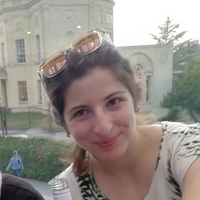This cluster gathers people interested in the mathematical foundations of AI techniques other than machine learning.
Mathematics has been at the centre of modern AI since the beginning. This cluster is dedicated to the study of the mathematical foundations for AI techniques other than machine learning. This includes, but is not limited to, automated reasoning, data clustering, theoretical computer science, graph theory, information theory, game theory, automated verification, and topological data analysis.
MFAIML meets around once month. Meetings usually consist of talks given by participants. The schedule with the meeting is published below.
You can access the meeting via this Zoom link.
Next meeting: Wednesday 22nd of December from 15.00 to 16.00. Click here to add it to your calendar.
New participants are always welcomed to join in!
Meetings
Here you can find a history of the meetings that have been held as well as short summary and the material used.
WASP Winter Conference.
Summary of the 2021 meetings, goals for the cluster in 2022, presentation from Danai about “Geometric combinatorics“.
The recording of the meeting is accessible here.
Preparation for the WASP Winter conference.
Reading and discussion about 2 papers:
Talk by Felix Rydell, on Algebraic Vision and its connections to ML. Slides
Talk by Amaury Gouverneur, on Introduction about Information Theory and application in ML. Slides
Talk by George Osipov, on Constraint Satisfaction Problems. Slides
Talk by René Mellema, on Chess computers and search as a paradigm for AI. Slides
Introductory talks on various topics.
Initial discussions. Election of cluster leader.
People in the cluster
 I’m interested in problems with an intrinsic geometric structure. They can be studied by informative topological invariants, which are compact and, in many cases, computable.
I’m interested in problems with an intrinsic geometric structure. They can be studied by informative topological invariants, which are compact and, in many cases, computable.
Keywords: Applied Topology, Persistence Theory
Publications:
- Chachólski, W., Jin, A., Scolamiero, M., Tombari, F., Homotopical decompositions of simplicial and Vietoris-Rips complexes, Journal of Applied and Computational Topology (2021), https://doi.org/10.1007/s41468-021-00066-2
- Chachólski, W., De Gregorio, A., Quercioli, N., Tombari, F., Landscapes of dataset and functoriality of persistent homology, Preprint https://arxiv.org/abs/2002.05972
Affiliation: KTH Royal Institute of Technology
Email: tombari@kth.se
 I’m interested in how we can mimic human behaviour on a macro scale by implementing agent behaviours on a smaller (micro) scale in computational tools. I’m currently looking into how we can incorporate social structures, such as norms, conventions, and social practices, into these agent behaviours. In this research, we use tools such as formal logic to describe these structures and how we should implement them.
I’m interested in how we can mimic human behaviour on a macro scale by implementing agent behaviours on a smaller (micro) scale in computational tools. I’m currently looking into how we can incorporate social structures, such as norms, conventions, and social practices, into these agent behaviours. In this research, we use tools such as formal logic to describe these structures and how we should implement them.
Keywords: Social simulation, Formal methods, Socially aware AI
Publications:
- Mellema, R., Jensen, M., & Dignum, F. (2021). Social Rules for Agent Systems. In A. Aler Tubella, S. Cranefield, C. Frantz, F. Meneguzzi, & W. Vasconcelos (Eds.), Coordination, Organizations, Institutions, Norms, and Ethics for Governance of Multi-Agent Systems XIII (Vol. 12298, pp. 175–180). Springer International Publishing. http://link.springer.com/10.1007/978-3-030-72376-7_10
- Dignum, F., Dignum, V., Davidsson, P. et al. Analysing the Combined Health, Social and Economic Impacts of the Corovanvirus Pandemic Using Agent-Based Social Simulation. Minds & Machines 30, 177–194 (2020). https://doi.org/10.1007/s11023-020-09527-6
Affiliation: Umeå University
Email: rene.mellema@cs.umu.se
 My interests are in the combinatorial and algebraic foundations of modern methods in AI.
My interests are in the combinatorial and algebraic foundations of modern methods in AI.
Keywords: algebraic graph theory, algebraic and geometric combinatorics
Affiliation: KTH Royal Institute of Technology
Email: danaide@kth.se
 I’m interested in discrete probability, particularly random graphs and combinatorial optimisation problems on random graphs, and algorithmic properties of such problems. Methods from statistical physics have shown themselves to be useful in this area, so my interests fall in the intersection between discrete probability, computer science, and statistical mechanics.
I’m interested in discrete probability, particularly random graphs and combinatorial optimisation problems on random graphs, and algorithmic properties of such problems. Methods from statistical physics have shown themselves to be useful in this area, so my interests fall in the intersection between discrete probability, computer science, and statistical mechanics.
Keywords: random graphs, probability theory
Affiliation: Uppsala University
Email: vilhelm.agdur@math.uu.se
 My research concerns constraint satisfaction problems over infinite domains. This is a general formalism that captures many computational problems arising in different fields, e.g., in spatial and temporal reasoning relevant to AI. I am particularly interested in algorithms and lower bounds for NP-hard constraint satisfaction problems.
My research concerns constraint satisfaction problems over infinite domains. This is a general formalism that captures many computational problems arising in different fields, e.g., in spatial and temporal reasoning relevant to AI. I am particularly interested in algorithms and lower bounds for NP-hard constraint satisfaction problems.
Keywords: Theoretical computer science, Constraint satisfaction
Publications:
- Jonsson, Peter; Lagerkvist, Victor; Osipov, George; Acyclic Orders, Partition Schemes and CSPs: Unified Hardness Proofs and Improved Algorithms, Artificial Intelligence, 103505, 2021, Elsevier
- Dabrowski, Konrad K; Jonsson, Peter; Ordyniak, Sebastian; Osipov, George; Disjunctive Temporal Problems under Structural Restrictions, Proc. 35th AAAI Conference on Artificial Intelligence (AAAI-2021), to appear, 2021
- Dabrowski, Konrad K; Jonsson, Peter; Ordyniak, Sebastian; Osipov, George; Solving Infinite-Domain CSPs Using the Patchwork Property, Proc. 35th AAAI Conference on Artificial Intelligence (AAAI-2021), to appear, 2021
- Dabrowski, Konrad K; Jonsson, Peter; Ordyniak, Sebastian; Osipov, George; Fine-Grained Complexity of Temporal Problems, Proceedings of the International Conference on Principles of Knowledge Representation and Reasoning, 17, 1, 284-293, 2020
Affiliation: Linköping University
Email: george.osipov@liu.se
 I aim to build connections between AI and algebraic geometry.
I aim to build connections between AI and algebraic geometry.
Keywords: Algebraic geometry, algebraic statistics, machine learning.
Affiliation: KTH Royal Institute of Technology
Email: felixry@kth.se
 Information theory and Machine learning.
Information theory and Machine learning.
Particularly, I am interested in the problem of generalization of learning algorithms. I am always interested in talking about other topics within Information Theory and Machine Learning, so do not hesitate to contact me for a discussion.
Keywords: Generalization error, information-theoretic bounds, stochastic gradient Langevin dynamics
Affiliation: KTH Royal Institute of Technology
Email: amauryg@kth.se

My current research focusses on trying to prove tight upper and lower bounds on the complexity of equality CSPs, to achieve a dichotomy result between tractable and intractable nature of equality constraints.
Keywords: Complexity Theory, Parameterized Algorithms, Constraint Satisfaction Problems
Affilitation: Linköping University
Email: abhijat.sharma@liu.se

My research interests lie in geometric and enumerative combinatorics and their applications to artificial intelligence.
Keywords: Polytope theory, discrete geometry, enumerative combinatorics
Affilitation: KTH Royal Institute of Technology
Email: aryaman@kth.se


